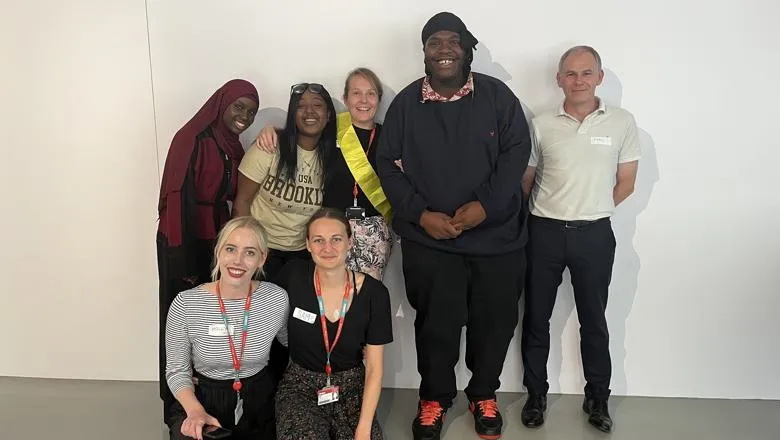We are thrilled to be shortlisted as finalists for this award. It is recognition of the tremendous amount of work the team have done with young people, schools, and communities to build strong partnerships and to ensure all who are involved in and have supported REACH tangibly benefit. This work is not an add on to REACH; it is an integral part, ensuring the quality, relevance, and impact of the research is maximised.
Professor Craig Morgan, co-director of the ESRC Centre for Society and Mental Health
30 June 2022
REACH team recognised for work improving adolescent mental health
A team of King’s researchers generating new information on the impact of social factors on young people’s mental health has been shortlisted for a Public Engagement with Research Award from the European Research Council (ERC).

The team behind the ERC-funded Resilience, Ethnicity, and Adolescent Mental Health (REACH) study – an ongoing programme examining the extent, nature, and development of mental distress among adolescents from diverse social and ethnic backgrounds – has been named a finalist in the ‘Inspire’ category, which recognises ERC grantees who demonstrate excellence in public engagement and outreach.
Led by King’s Professor Craig Morgan and colleagues at the ESRC Centre for Society and Mental Health, the REACH project has brought together more than 4,000 young people from 12 secondary schools in South London to talk about their mental health, social circumstances and experiences, and the impact that factors such as poverty, racism and social support can have on their wellbeing.
Study shows 1 in 5 young people in London struggle with their mental health
Working closely with community partners to co-produce and disseminate the findings – which have shown that around 20% of pupils in inner-city London have difficulties with mental health, compared to 14% nationally – the REACH team engages regularly with stakeholders and the general public.
They present their results in policy reports, online videos, podcasts and on social media, as well as through other creative activities (for example, in-school talks and workshops, community-based and national festivals and exhibitions, and online work-experience programmes).
Through this outreach, the initiative continues to successfully involve and engage young people, parents and other audiences on important and sometimes challenging topics.
REACH has recently completed its sixth wave of data collection, supported with additional funding from UKRI and the UK ESRC. The next round will take place in 2023/2024, and the current focus is on analysing the rich data source and using this as a platform to inform policy and practice.
Data collected so far through REACH shows that:
- Mental distress was more common among girls than boys, with differences more pronounced in Year 8 and 9 students than Year 7.
- There are striking similarities, with some variations, in the prevalence of mental distress by ethnic and social group.
- The prevalence of mental distress was higher among those with a mixed heritage/ethnic background (25% or 1 in 4), compared with other ethnic groups.
Professor Morgan added: “Adolescence is a critical period of emotional and behavioural development and the period during which most adult mental health conditions first emerge. The research findings we have gathered so far have already broadened our knowledge on how and when to intervene to reduce mental health risks. The end goal is to better understand how to promote good mental health among young people from all backgrounds.”
ERC grantees have a contractual obligation to communicate the work they are doing through their project and the Public Engagement with Research Award celebrates those who successfully engage with audiences both inside and outside their research area.
The winners, who will each receive a €10,000 award from the ERC, will be announced during a ceremony at this year’s EuroScience Open Forum in Leiden on Thursday 14 July. This will be streamed on the ERC YouTube channel from 2.45pm (BST).
A public vote is also now open for people to support their favourite finalist in the run-up to the ceremony. Visit the ERC website here to vote for the REACH team.
For more information about REACH, please contact Professor Craig Morgan at craig.morgan@kcl.ac.uk




